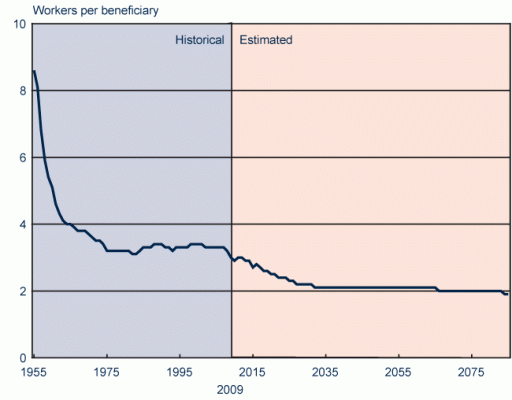I read something over the weekend suggesting that we phase out the employer side of the payroll tax for individuals approaching retirement (say drop it by half a percent ever year over 50) while also raising the maximum age at which people can hold off collecting Social Security (while keeping the minimum where it is).
- This would reduce age discrimination... as a 63 year old employee would cost 6.2% less in overhead than a 49 year old.
- People who are fit to work but didn't save enough on their own (90% of the 65-75 group from what I hear) could continue working if they wanted, and you'd assume they'd get a slightly better salary because of the reduced overhead cost they are to their company
- The percentage of people working longer because of the above would offset the reduced payroll taxes received from employers (they'd still be paying their side of the payroll tax).
- People who are sick or unable to work past 62 could just collect early and be no different than today's system.
This system doesn't fit the ER mindset at all, but we would all be unaffected by it. It seems to make more sense for the average mindset in this country... spending the entire salary, and hope for something to help when work isn't possibly anymore.
(I'm sure there are some pitfalls I'm missing... so please feel free to point them out)


